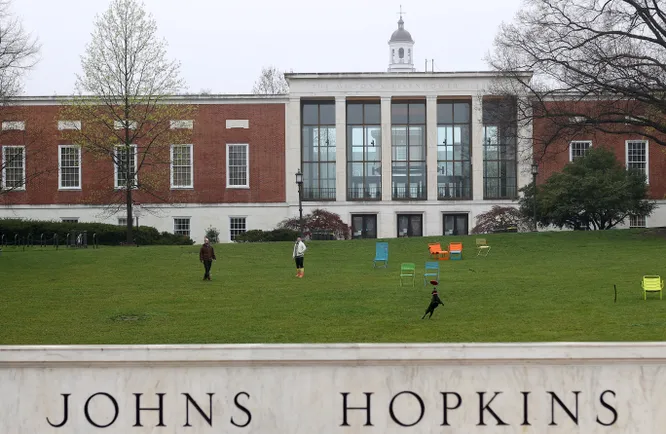Dive Brief:
- Indiana Gov. Eric Holcomb, a Republican, signed a bill into law Wednesday that will tie tenure at the state’s public colleges to whether professors promote intellectual diversity and free inquiry.
- Under the law, faculty members may be denied tenure if they are deemed unlikely to encourage intellectual diversity or expose students to scholarly works from a variety of ideological viewpoints. After receiving tenure, trustee boards will review faculty members along similar criteria every five years.
- The new law has faced criticism from advocates for academic freedom. The legislation is part of a broader conservative movement to more tightly control how colleges operate.
Dive Insight:
Under the new law, which takes effect in July, Indiana’s seven public colleges will also be required to establish procedures for students and employees to submit complaints against faculty members who do not foster a culture of free inquiry.
They will be able to file complaints about faculty who don’t expose students to an array of viewpoints or who offer opinions during teaching hours unrelated to their academic disciplines.
The law will require colleges to provide these complaints to supervisors and human resources officials for consideration during tenure and promotion decisions. They will also have to provide the number of complaints they received each year to the state’s higher education commission.
The law will also require colleges’ diversity, equity and inclusion offices to include in their missions “programming that substantially promotes both cultural and intellectual diversity.”
Gov. Eric Holcomb said signing the law, known as SB 202, is part of his commitment to diversity.
“SB202 establishes a foundation at our publicly funded universities to ensure freedom of expression for students and faculty,” he said in an emailed statement. “The bill requires free inquiry and civil discourse programming for new students, strongly encourages academic freedom and protects faculty to express differing viewpoints from their colleagues and university leadership.”
State Sen. Spencer Deery, a Republican who introduced the measure, has said he believes it will help to restore confidence in higher education. Before the bill was signed into law, Deery pointed to a Gallup poll that found confidence in higher education among Republicans dropped to 19% in 2023, down 37 percentage points from 2015.
“Monolithic thinking” has made some wary of colleges and universities, he said.
“Indiana just sent a strong signal that our state is committed to academic freedom, free expression and intellectual diversity for all students and faculty,” Deery said in a statement Wednesday. “Universities that fail to foster intellectually diverse communities that challenge both teachers and learners fail to reach their potential.”
However, the law has faced criticism from university groups.
Two chapters of the American Association of University Professors, at Purdue University and Indiana University Bloomington, opposed the bill last month, saying it would impede their academic freedom and their ability to attract and retain faculty.
“SB 202 mandates a system of surveillance and political scrutiny that will instead stifle the free flow of ideas,” the two chapters said in a February statement. “It requires that hiring, tenure, and promotion become subject to reviews that judge faculty based on political criteria, and that post-tenure employment be contingent on further periodic reviews.”
In March, the American Political Science Association similarly said the law threatens academic freedom.
“Placing the authority of post-tenure review in the hands of a board of trustees leaves the stability and advancement of faculty careers up to the ideological whims of the board rather than academic merit,” the organization said in a release.
However, Purdue University said in late February that the measure was not likely to significantly change or impact the institution.
“Unlike many other institutions that headed down convenient yet slippery slopes in recent years and months, this university has not been in, and will not get into, the business of censoring controversial speech, chilling unfashionable viewpoints, canceling campus events, suspending faculty or fellows, or issuing endless institutional public statements on social-political issues,” officials from the university wrote in a statement.
Although the board of trustees will continue to have the final vote in post-tenure review, Purdue plans to try to formally delegate the process to the university’s chief academic officer and its academic deans council.
“Faculty, across all ranks and tracks, are the backbone of the university, and Purdue will continue to grow our support for faculty success,” officials said.
#Indiana #governor #signs #bill #tying #tenure #intellectual #diversity










